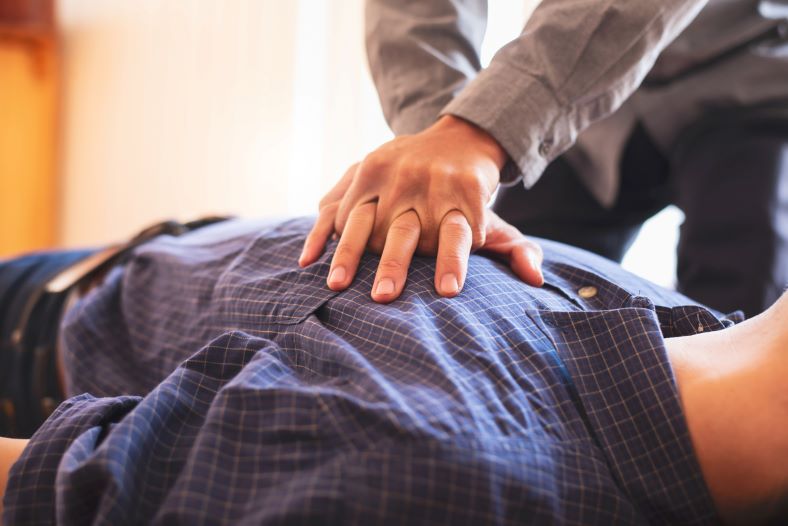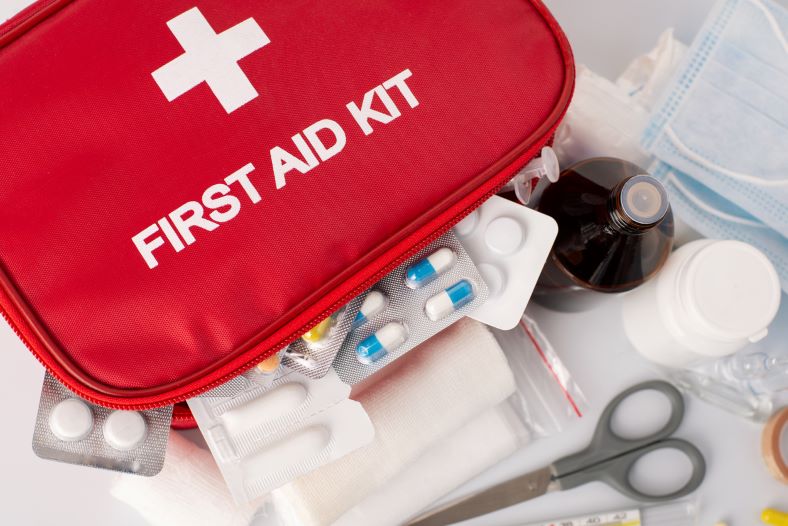What To Do In A Medical Emergency
In a medical emergency, every second counts. Being prepared ahead of time and knowing what to do when those moments arrive is critical to getting the help you need in time.
The CDC states an average of 35 million injury-related visits1 to the ER every year. To help you understand what to do if you find yourself in this situation, our medical emergency injury attorneys explain what to do and how to help accident victims in need.
What Is a Medical Emergency?
A medical emergency is an illness or injury that can cause long-term harm or death. It is a critical condition that may lead to severe permanent harm. Immediate action is required to reduce the risk of damages and further injury.
Recognizing a Medical Emergency
Unusual events or circumstances are often an initial indicator that a medical emergency may be present or about to occur. If you hear yelling and expressions of distress or alarming noises such as breaking glass or crashing, it could signify that someone needs help.
In the cases of health-related emergencies, abnormal behavior such as difficulty breathing, slurred speech, confusion, irritability, or erratic conduct may indicate that a person needs immediate assistance.
What To Say to 911
If you determine that a medical emergency is present, you should call 911 immediately. About 240 million people2 call 911 each year in the U.S, so the information you provide when you contact them is crucial to getting a quick response and possibly saving a life.
When calling 911, you should:
- Tell the dispatcher the nature of the emergency. Let them know if it’s a fire, car accident, or medical emergency so that the dispatcher can send the correct medical professionals.
- Give your location. Medical emergency technicians need to find you quickly. Provide the address if you know it as well as characteristics of the property or nearby landmarks.
- Add important details. 911 dispatchers need to know the condition of the victim. Are they breathing? Are they conscious? Respond to the dispatcher’s questions.
- Follow instructions. The emergency operator may guide you through first aid until a person with more experience arrives to take over.
What if the Victim Is Not Breathing?
If a medical emergency victim is not breathing, such as after a heart attack, call 911 and administer CPR. The American Red Cross3 suggests 7 CPR steps:
- Check the scene and the person
- Call 911
- Open the airway
- Check for breathing
- Administer chest compressions
- Deliver rescue breaths
- Continue CPR steps until help arrives
Once a first responder arrives, it’s essential to write down everything you remember, including an explanation of what occurred, witness testimonies with contact information, and resulting damages. Photos of the situation may also be helpful.
How To Prepare for an Emergency
Preparedness is always the best way to prevent serious situations from escalating into something worse. Having access to an emergency medical kit may mean the difference between a life and death situation. To begin with, make sure you have a first aid kit at home and in your car.
What You Need in a First Aid Kit at Home
To be prepared for a medical emergency at home, a first aid kit should have things that can help with minor medical issues and emergency response.
Your home first aid kit should have:
- Bandages in several sizes
- Wraps and tape
- Emergency phone numbers
- Soap and antiseptic wipes
- Scissors and tweezers
- Tooth preservation kit
- Thermometer
- Flashlight and batteries
- Blanket
- Safety pins
- Antibiotic ointment
- Instant cold packs
- Aspirin
In addition to having the right items in your first aid kit at home, you should also have working smoke and carbon monoxide detectors. Test and replace the batteries regularly. Knowing the exit routes and what hospital you would go to in an emergency are things that can help you save time.
What You Need in a First Aid Kit for Your Car
A car first aid kit should be diverse. Supplies may be needed for a medical emergency at work, while traveling, or even in a remote location.
Your car first aid kit should have:
- Band-aids of all sizes
- Gauze pads, wraps, and safety pins
- Flashlights and batteries
- Water
- A supply of non-perishable food
- Instant cold packs
- Rubber gloves
- Scissors
- Tweezers
- Antibiotic
- Thermometer
- Aspirin
- Blankets
- Ibuprofen
- Hand sanitizer
- Eyewash/saline solution
- Vaseline and sunscreen
- Gloves and hats (depending on where you’re traveling)
- Paper towels or cloth towels
- A CPR mask
A car first aid kit should be kept in a water-tight container. Be sure to restock it when you use it and check it periodically. Include supplies for any special needs that you may have, such as asthma medication.
What To Ask a Stranger Hurt in an Accident?
It’s crucial to ask the right questions when you’re helping a stranger hurt in an auto accident or other mishap. Here is what to say to someone who may need help.
- What is your name? – Knowing the person’s name can help them feel at ease and communicate with you.
- Are you having trouble breathing? – Difficulty breathing can be a sign of a serious emergency.
- Are you hurt? – A person may have injuries and not realize it. However, asking an open-ended question can help the person know they need help.
- Where is the pain located? – Asking a person what hurts can help pinpoint the problem.
- How did the accident occur? – Learning what you can about the accident can help determine what the person’s injuries may be. It can also help with an investigation into the cause of the crash.
- Who else was involved? – Memories can fade quickly, so it’s important to gather all the information you can right away.
- Do you have prior medical conditions? – Ongoing medical problems can impact the appropriate treatment for a person injured in an accident.
- Are you taking medication? – Some medications cause dangerous interactions with other medications.
- Do you have allergies? – Allergies can play an essential role in determining how to treat an injury victim.
- How bad is the pain? – You can ask the person to rank their pain on a scale from 1-10. Knowing pain levels may help you determine what is wrong and what kind of care they need.
Be sure to call 911 before you begin to administer aid. Dispatchers may give you instructions specific to the situation.
How Can a Medical Emergency Injury Attorney Help Me?
A medical emergency attorney can help you assert your rights after an accident. They can evaluate the incident, causes, and take steps to preserve critical evidence and talk to witnesses.
A medical emergency injury attorney may also be needed in the case of emergency room errors or wrongful death associated with the incident. It’s always better to be cautious when it comes to your well-being. The expertise of a medical emergency injury lawyer can provide significant support during a critical event.
Sources
1Centers for Disease Control and Prevention (CDC). Emergency Department Visits. Retrieved 29 November 2021.
2National Emergency Number Association (NENA). (February 2021). 9-1-1 Statistics. Retrieved 29 November 2021.
3American Red Cross. Training Services. CPR Steps. Retrieved 29 November 2021.



